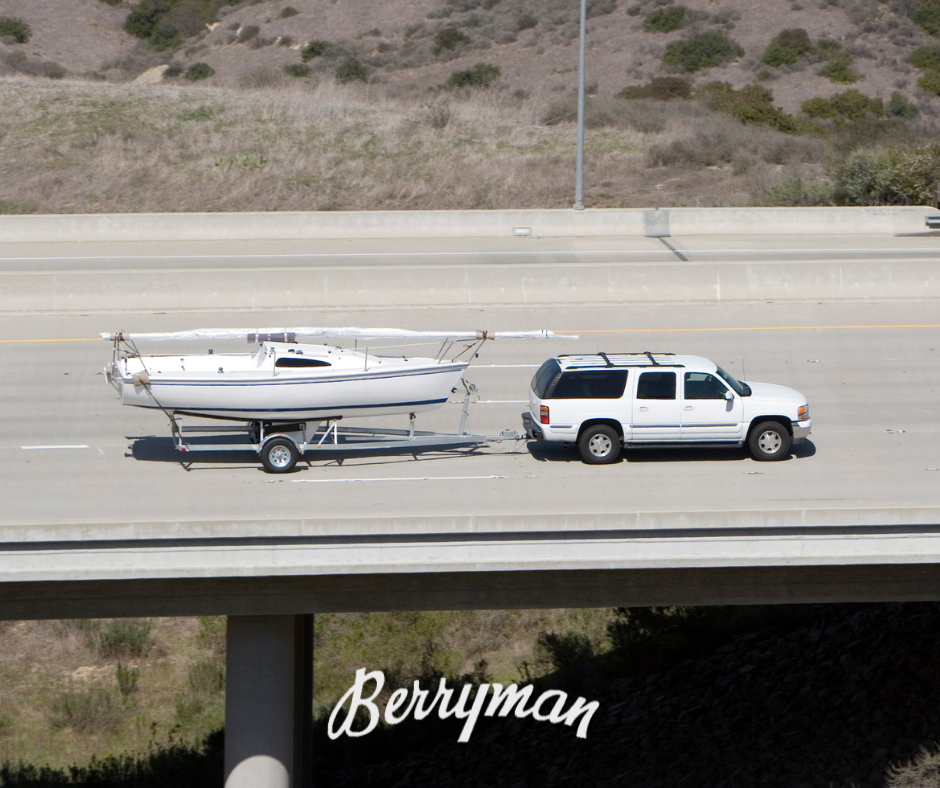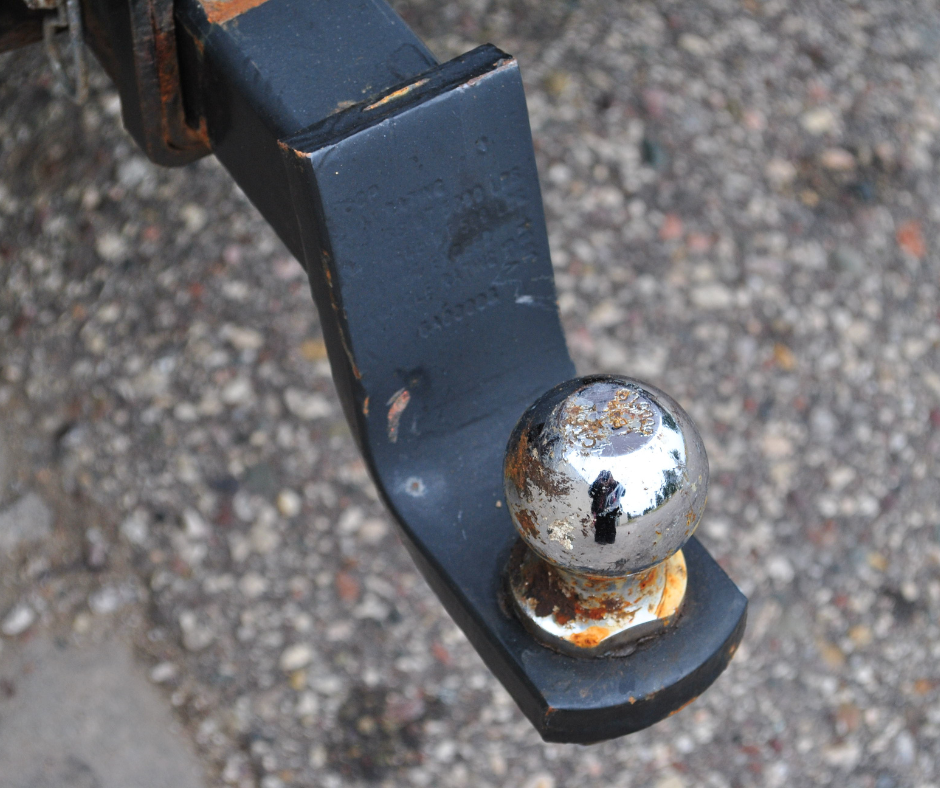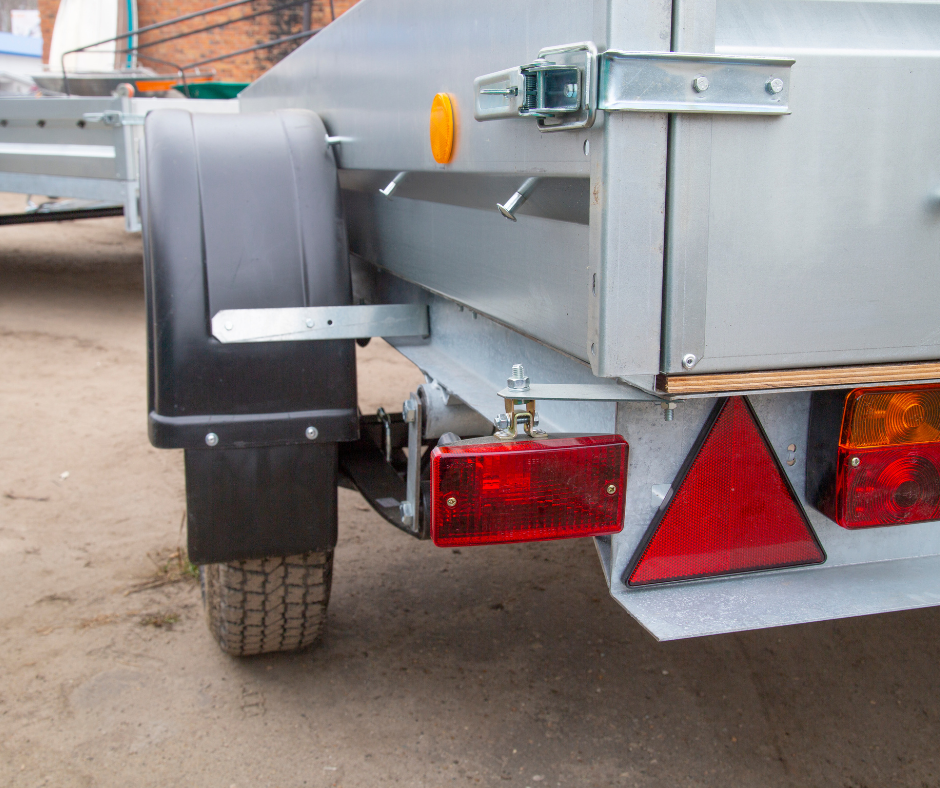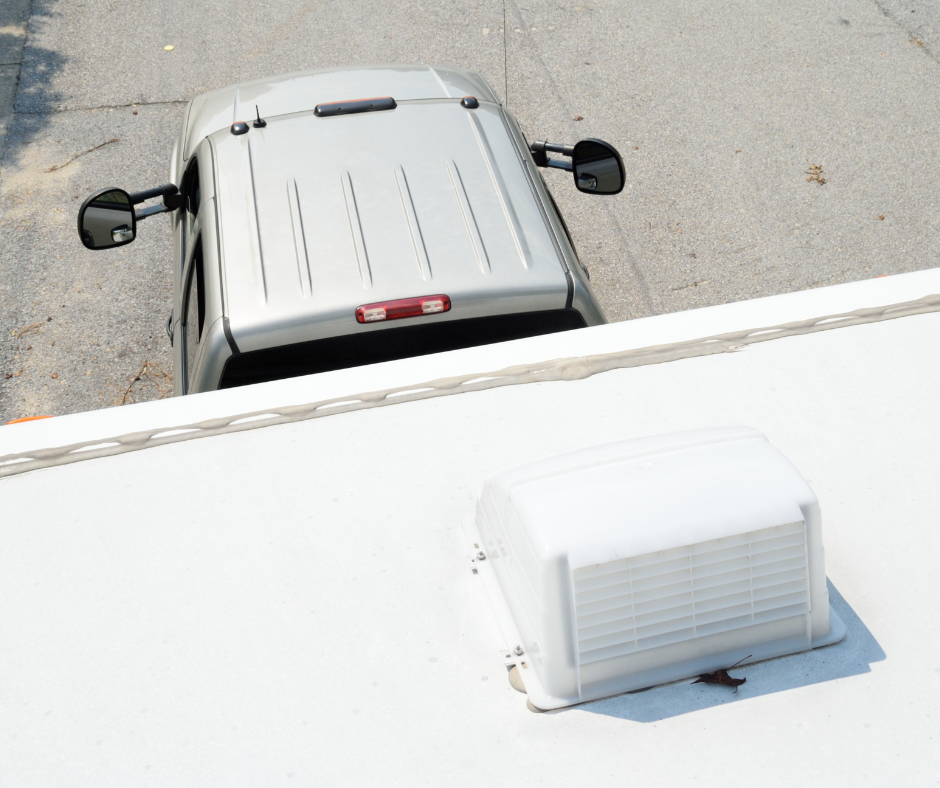Summer is in full swing, so more people are hitting the road to travel to their favorite destinations while hauling boats, campers and trailers. If you’re among this group of summertime explorers, don’t let the road trip fun come to a staggering halt because of vehicle and trailer problems! Check out the towing preparation and trailer safety tips below to stay safe while out on the road.

Check Your Vehicle’s Transmission
Your vehicle’s transmission transfers the engine’s power to the wheels. Therefore, transmission problems such as leaks and burnt smells are severe issues and should be diagnosed by experienced professionals. These experts know how to fix the most common transmission problems.
Sometimes, your car’s transmission only needs some cleaning, using an industry-grade professional parts cleaner.
Other times, when it comes to more severe issues such as leaks or hardened seals, your mechanic may have to use a reliable transmission sealer to improve shifting and provide temperature stability.
Watch Out for Steering Problems
Before you head out on your journey, you should pay attention to potential steering problems. For example: Does it seem like your vehicle is difficult to steer, like the wheel sticks or feels jerky?
Some of the symptoms of a flawed steering system you should look out for include the following:
- Screeching or grinding noises when steering
- Your car is leaking discolored liquid
- Your steering wheel slips as you turn
- Resistance from the wheel while turning
You should inspect several potential causes, such as low power steering fluid, fluid leaks, failing rack mount, tie rod problem, bad strut bearings or a worn-out power steering belt.
Bring Spare Tires
All drivers should bring a spare tire so they don’t get stuck on the road when they get a flat. However, bringing extra spares for your towing vehicle and trailer will also be a great idea. Another thing to remember is to bring the correct lug nut wrench that matches the tires on your truck and trailer.
Trailer Tire Checkup
After checking your towing vehicle, you also need to inspect your trailer’s tires. Many people make it a habit to check the tire pressure on their towing vehicles but forget the ones on their trailers. In addition, you should do more than just check the tire pressure. Look for signs of cracking or dry rot even if the tires still have plenty of treads.
Tires tend to age over time, so you need to inspect them, especially if they’ve been kept in storage for a while. Don’t expect your tires to be in tip-top shape after staying in your garage all winter. Older tires are more prone to tire failure.
Inspect Your Vehicle’s Suspension
Have a mechanic check your truck’s suspension if you experience any of the following symptoms:
- Unusually bumpy ride while hauling
- Difficulty steering
- Vehicle drifting to one side when turning
- Continued bounce after going over bumps
- One side of the car sitting lower when parked
- Dipping action when braking
Diagnosing a car’s suspension can be difficult. You can mistake the symptoms for signs of other problems, which is why it’s best to leave it to an experienced mechanic.
Front End Alignment
Next in our list of trailer safety tips is for your truck’s front end. A good wheel alignment will impact your vehicle’s handling. When the tires are correctly aligned, you avoid premature tire wear, and your vehicle travels straight and smooth on the road.
Front-end alignment issues will have the following symptoms:
- The steering wheel doesn’t sit straight
- Excessive or uneven tire wear
- Bumpy rides even on smooth pavement
- Your car shakes while on the road
- Your vehicle tends to pull on one side while driving
Get Your Engine Ready for the Summer
With the heat ramping up, expect your engine to get hot faster during the summer. There are several warning signs that your engine is overheating you should look out for, such as:
- Steam or smoke from the hood
- Poor engine starts
- Sudden acceleration/deceleration
- The temperature gauge is nearing the red letter H
- Increased fuel consumption
- Strange smells coming from the front of the vehicle
- Engine loses power while going up a slope
- Reduced power when towing
When you notice these symptoms, you need to get a skilled mechanic to check for fuel contamination, clogged filters, problematic injectors and a bad fuel pump. In addition, your engine needs to undergo a maintenance check to get it summer-ready.
Matching Your Hitch Ball to the Trailer
Before you start hauling anything to the beach, camping grounds or other vacation spots, you should inspect your receiver hitch.
Some crossovers, SUVs and trailer trucks have a factory-installed hitch, which has been integrated into the frame.
The trailer’s coupler should match your truck’s hitch size. Mismatched hitch balls can cause a loss of control while driving. According to the Family Motor Coach Association (FMCA), 29 percent of trailer and truck accidents are caused by drivers losing control of their vehicles.
Hitch balls come in three sizes: 1⅞, 2 and 2 5⁄16 inches. If you find that the hitch and the coupler don’t match, you can get a mechanic to install matching units.
Trailer Safety Chains
Next on our list of trailer safety tips is using trailer safety chains. Aside from using a matching hitch ball and coupler, using safety chains also helps to secure your vehicle and trailer. In addition, these chains can be used to hook your trailer to the hitch.
Make sure to cross the safety chains and not just run them straight from the trailer to the truck. With that setup, the chains will form a metal cradle in case the trailer gets disconnected from the towing vehicle. Then, instead of crashing toward the pavement, the trailer will be caught by the chains, saving you from costly repairs.
Inspect Trailer Lights
Even if you’ve been towing and hauling for many years, you should check your vehicle’s wiring regularly to ensure they power all the lights.
The wires on your truck and trailer will wear out over time. Apart from that, you should also check the bulbs on both your trailer and towing vehicle.
All the bulbs wear out over time. When you see any bulb not lighting up as brightly as before, it would be best to replace them before your trip. You will need a spotter to look at the back to see if the brake lights and blinkers are still working.
Install and Inspect Tow Mirrors
Some vehicles already have tow mirrors installed. However, if your car doesn’t have one or your trailer is wider than your truck, you should install aftermarket tow mirrors. Wider tow mirrors allow you to see the blind spots at the back while driving. In addition, they improve rear visibility making it easier to back up.
Get the widest tow mirrors you can find. In addition, if you have the budget for blind spot warning systems, have them installed on your vehicle. These systems have proximity alerts, which are helpful when backing up your trailer.
Secure Your Load
Check your owner’s manual and determine the total load capacity of your truck, SUV or other vehicles. It is also best to know your truck’s towing capacity, which you can find by reading the owner’s manual. Ensure you’re not overloading your vehicle since it will affect its handling. Every vehicle has a trailer rating, so get a trailer that matches your truck’s towing limits.
In addition, you should also secure your load using ratchet or tie down straps. When you make pit stops along the way, inspect your trailer’s load frequently, ensuring that nothing has shifted their positions. Unsecured loads tend to move around when you turn or make sudden stops, which can cause steering problems and potentially cause accidents.
Install a Larger Fuel Tank
Your vehicle tends to use more fuel when towing extra weight, which is why installing a larger tank will be beneficial. In addition, a larger fuel tank increases your vehicle’s capacity, allowing you to go further without refueling.
Unfortunately, finding a gas station in remote parts of the country is not always easy. If installing a larger fuel tank is out of your budget, you can purchase a pair of five-gallon spill-proof poly gas cans. Just a reminder, when purchasing gas cans, always check if they’re EPA (Environmental Protection Agency) and CPSC (Consumer Product Safety Commission) compliant.
Use Wheel Chocks
Wheel chocks are sturdy triangular or wedge-shaped blocks that you can place in front of and behind the tires. They prevent the tires from rolling, keeping your vehicle and trailer in place after parking them. Make it a habit to place the wheel chocks before unhooking the trailer from your towing vehicle so your trailer doesn’t roll away, especially when parking in a sloped area.
Driving Tips for Safe Hauling and Towing
Here are some driving safety tips that you should remember, aside from the vehicle summer maintenance tips mentioned earlier:
- Make Wider Turns: In many instances, trailers will be heavier and taller than the towing vehicle. Therefore, drive slowly and make wide turns when approaching a corner or curve on the road. Using this maneuver prevents your vehicle from toppling over.
- Adjust Brakes According to Load: Many trailers have electric brakes installed. Adjust their power level according to the weight your vehicle is hauling.
- Extend the Stopping Distance: You’re driving a heavier vehicle when towing and hauling. Allow a longer stopping distance from the car in front of you, so you have an allowance for abrupt stops. This allows you to hit the brakes sooner and prevent accidents.
- Switch to Haul Mode When Going Downhill: Use engine braking by shifting your truck to the tow/haul mode on your vehicle. This mode shifts the transmission to a lower gear, taking some of the strain off the brakes.
- Get Someone to Spot When Backing Up: Regardless of how long you’ve been towing, it’s always best to have someone spot you when you’re backing up. This practice helps reduce accidents.
For more information about the products and maintenance tools mentioned in this guide, contact Berryman Products today. You can also visit our distributors’ page to find our retailers and order our products.



